Dr Gagandeep Kang, Executive Director of the Translational Health Science and Technology Institute (THSTI), Faridabad has played an instrumental role in developing vaccines for children in India. In an exclusive interview with Deepika Khurana, Dr Kang gets candid about what it means to become a Fellow of the Royal Society of London, the effectiveness of Indian vaccines, lack of research funding and how to combat the problem of fake news in science.
Executive Director at India’s leading scientific think tank, Translational Health Science and Technology Institute (THSTI), Faridabad, Dr Gagandeep Kang has some remarkable achievements to her credit. Also known as India’s vaccine God Mother, virologist Dr Kang has played a pivotal role in devising and developing an avant-garde vaccine to equip India against Rotavirus – a highly contagious virus that spreads rapidly. It is a common cause of diarrhoeal disease among infants and young children and is responsible for the death of 80,000 to 100,000 children every year in the country.
From developing two low-cost indigenous vaccines against Rotavirus and Typhoid that save lives of millions of children across the globe to earning the most coveted laurel of becoming the first-ever Indian woman to be awarded the fellowship of the oldest scientific academy in the world, the Royal Society, London – Dr Kang, a public health crusader, has done it all.
She has published over 300 scientific papers and is on editorial boards for several journals. Dr Kang is part of many review committees for national and international research funding agencies and has served on several advisory committees, including India’s National Technical Advisory Group on Immunisation, the WHO’s Global Advisory Committee on Vaccine Safety and the Immunisation and Vaccine Implementation Research Advisory Committee.
Dr Kang also chairs the WHO SEAR’s Regional Immunisation Technical Advisory Group (2015–present). Her success is a story of grit, passion and perseverance.
In an interview with Health Analytics Asia, Dr Kang gets candid about what it means to become a Fellow of the Royal Society of London, the effectiveness of Indian vaccines, lack of research funding, the role of teamwork in research, and the problem of fake news in science.
Edited excerpts:
You are the first Indian woman scientist to be elected as the Fellow of the Royal Society (FRS), London. What was your instant reaction and how has this recognition changed your life?
It was hard for me to believe as I didn’t see it coming. In terms of my work, nothing has really changed. Yes, I get invited to a lot more events and I have to speak in many more places, but in terms of the actual research that we do, nothing has changed because of the FRS.
It does bring you additional funding, it does bring you additional recognition but as medical researchers, we have to ensure that our work is valuable enough so that people who fund us view it as being valuable.
Besides, I haven’t really had that much Indian funding for my work, so things have been more or less the same.
What is the study or research that’s keeping you busy these days?
Right now, I am working on multiple things. I have a young colleague Jacob John who is working on Typhoid surveillance which is a huge surveillance programme that we have established across the country. Essentially, it’s highlighting that we have a very high hidden burden of Typhoid and because it is vaccine-preventable and because antimicrobial resistance in Typhoid is a significant concern, so we are interested in making sure that this story gets heard.
At THSTI, we focus on multiple areas – my own research that I am interested in right now is to establish human challenge studies in India. It’s basically that we don’t understand human immunology very well and in a country like ours where exposure to infection is very different from that in the West, we think our immune systems will respond differently to the antigen. And, frequently, we don’t understand how they will respond because we don’t know what exposures people have had. So, there are very safe clinical studies that can be done in people. These can determine whether vaccines or drugs are going to work or not. And that’s what I would like to build capacity for in India. These kinds of studies can only be done in truly outstanding places where science and medicine coexist at the highest levels.
What made you pick up rotavirus as your subject of research?
I am a sucker for things that don’t get attention from other people. If you look at infectious diseases, they have a very small area. People tend to work on large problems, for example, dengue, HIV, TB or malaria.
Diahhorea was an ignored problem and there aren’t a lot of people who work on diarrhoea in the world. But, because I worked in the community, I could see how important diarrhoea was for young children and that’s why I decided to work on that. Rotavirus is the number one cause of diarrhoea. So it made sense.
For the last 70 years, we’ve been giving the same routine vaccines to young children. Is there any problem of resistance against vaccines too, like it is with antibiotics?
It’s impossible to be resistant to a vaccine because humans don’t evolve fast enough. When a vaccine doesn’t work it could be either because the antigen is not good or the host does not respond well to the vaccine. But, if the vaccine does work, in the way that it is intended to, then you will get protection from that disease for a period of time.
Some vaccines will work forever. Some vaccines will work for a few years. But it’s a ‘yes’ or ‘no’ kind of a situation unlike bacteria, where resistance emerges.
From what we know, parent bacteria are not resistant but they acquire genes that they can pass on to their babies that have acquired resistance. Because the generation time of bacteria is as short as 20 minutes, you can have multiple generations in a day. That allows you to have a population of resistant bacteria.
How effective and safe are Indian-made vaccines? How do you ensure the efficacy of the vaccines your team has developed?
I am really worried about the drug situation in the country because I think the reason you study medicine is to help people, not to harm them. And, if you have sub-standard quality drugs, if you have fake drugs or fake vaccines, then you are not doing what you are set out to do.
In India, the drug situation is a lot worse than the vaccine situation. We have much fewer companies that make vaccines and the companies that are WHO pre-qualified have been evaluated for their quality. But, why should it take a WHO benchmark? Why should it not be an Indian benchmark of quality?
There have been situations where WHO pre-qualification was taken away from some manufacturers and they had to earn it back. This whole process has led the manufacturers to understand the value of quality and invest in a quality system. So, our big manufacturers are on the good ground now.
For the vaccines developed by our team, we don’t evaluate quality. But, the work that my lab has done is to evaluate the immunogenicity of those vaccines – which means when children receive vaccines will they make an immune response or not. We’ve been doing that for about 12 years now. And, both the vaccines are working.
What is the most exciting research you’ve been involved with in the past?
I have to say it was the results of the Rotavirus vaccine study. When you do these double-blind trials, you don’t know what the results are going to be. You can only do the study and make sure it’s done right.
Data safety and monitoring board actually holds the key to the data and they are the ones who tell you the results. So, the day when they declared the results was my best day.
I have done a lot of clinical trials where I sat there and the results have been that ‘it didn’t work’.
How important is to have a trustworthy team during research?
The kind of work that we do there is no question of not having a team. Every person who is working on a project has to be blindly trusted. We follow this system called ‘trust but verify’, so we have independent checks.
You have to build your own team. I invest a lot of effort in making sure that people grow because if people own their projects, they tend to do well. So, that’s why trusting people and not constantly peering over them is the key.
How do you manage to achieve a positive work-life balance?
Exercise is important to be able to strike a healthy balance. Where family is concerned, I spent a lot more time with my kids and family members when they needed that. It probably led to my not working as much as I would have done otherwise.
Now that my two boys are grown up, four of us always take at least one day off around Christmas or New Year and we go to the beach together.
I also have my girlfriends from college and every couple of years we try to take a holiday. No husbands, no children. And, we’ve been doing this for eight years now. Its absolute luxury.
What made you choose community-related health issues after completing your MBBS?
There are many people who work in hospitals and the difference in getting an education in the Christian Medical College, Vellore (CMC) is that in your first year you are taken to the villages. You spend three weeks there and essentially, you get to know people. You learn what their family structure is, their occupation, education, what is irrigated land, how much money do you make, etc. That kind of grounding actually teaches you a lot. You realise how diseases that don’t come to hospitals impact people. For example, cold cough fever doesn’t come to the hospital but it will wind up at the local pharmacy or the local clinic. A little more severe illnesses will go to a traditional medicine practitioner.
So, if you want to understand how health is managed in a community, the only way to do it is to be there.
Is the problem of “fake news” affecting Science and scientific researches as well? If so, how serious is the problem and what are the ways to combat it?
If you look at vaccines, then there are anti-vaccine lobbies that are powerful and well-funded. This is dangerous because we have already taken hold in some parts of the world and we don’t need these approaches but then, they exist.
In India, a lot of people are making anti-vaccine videos and sharing them on WhatsApp – these are religion, language, small-community based and this can have a significant impact on public health. So, from a public health’s perspective, we need to build trust in science.
Vaccination hesitancy in Kerala despite every household having a doctor is a problem of a different kind. That is us not doing a good job in medical education. And, anyways, our medical education is borrowed from the West.
So, if you think about teaching public health, there’s only one CMC, at other places they do not teach public health the same way. I think for schools and colleges, these are life skills. Therefore, every aspect of education should include components of public health.
The best way to fight misinformation in health is through education. We need to give people the skills to be able to evaluate what’s true or false.
What according to you is the state of research in India and what are the barriers? Is the lack of funding one of the main reasons constricting the quality of research in the country?
Our physics and chemistry are really good. At astronomy, astrophysics and space science too, we are doing a good job. But, we are not doing good in medicine. That is because we are overwhelmed with the problem of patients.
When you don’t have enough doctors to see patients, how will you have doctors to do research. In our country, research in medicine is viewed as a luxury. This is meant for western people who can have protected time and lots of funding and I don’t think that should be the case. If we want treatments that are appropriate for our population, we need to be actually doing the research ourselves instead of waiting for someone else to tell us what we need to do. So, I think there’s a lot that can be done.
In our curriculum, research is given over-importance because every postgraduate medical practitioner has to write a thesis. Why? When you are focussing on your clinical advancement why are you having to do a thesis that has to be ‘so-called research’. It becomes a burden. I think converting thesis into an audit project or something similar that allows you to access your system yourself is a better way to do things than to ask people to necessarily do it.
But, yes, those who want to do it should be encouraged and should be shown enough pathways.
Where funding is concerned, medical funding is an offshoot of biology funding. In biology, you can write a project which says the project is for three years and I will do these many experiments in this fixed timeframe and I will deliver this output, but in medicine, you can’t experiment on specified timescale and budget because you are talking about people. And, we don’t have a dedicated stream for medical research funding in this country.
We do have the Indian Council of Medical Research but take a look at their own institutes where most of the people are PHDs and not MDs. So, the projects they write are more on basic science than actual medical research.
What is your advice to early-career women scientists or women whose work spans the fields of science, technology, engineering and mathematics (STEM)?
Make good friends. There’s actually nothing like having women friends because they are the ones who will always tell you that you can do and achieve things. I feel fortunate to be surrounded by friends who are an incredible source of support and inspiration. But, yes, choose your friends carefully.
Support journalism that matters and helps you make important decisions! Become a member now!



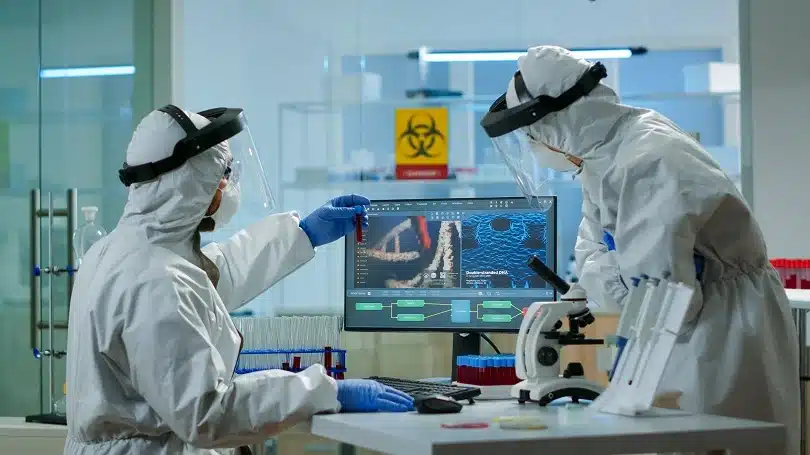

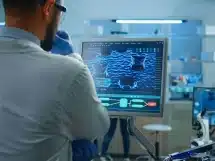

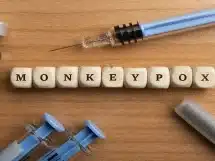

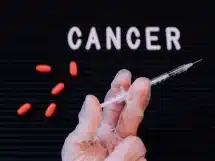







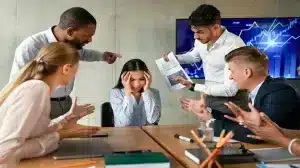
Add Comment